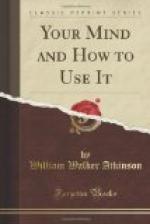16. Seashore, Carl E., Psychology in Daily Life, New York: D. Appleton & Co., 1918.
17. Seward, S., Note-taking, Boston: Allyn & Bacon, 1910.
18. Stiles, Percy G., Nutritional Physiology Philadelphia: W. B. Saunders Co., 1912.
19. Stiles, Percy G., The Nervous System and Its Conservation, Philadelphia: W.B. Saunders Co., 1914.
20. Swift, Edgar J., Psychology and the Day’s Work, New York: C. Scribner’s Sons, 1919.
21. Watt, Henry J., The Economy and Training of Memory, New York: Longmans, Green & Co., 1909.
22. Whipple, Guy M., How to Study Effectively, Bloomington, Ill.: Public School Publishing Co., 1916.
INDEX
Acquisition, vs. “construction”
Activity, mental
Association, laws of;
in memory;
in reasoning;
in examination
Attention;
fluctuation of;
resistance of distractions;
lapses of
Bibliographies
Bodily activities, in recognition;
distractions in attention
Brain, description of;
elementary cells;
tissue, properties of;
tracts;
areas
Charlemagne
Clarification of ideas, through definition and classification;
through expression
Classification of ideas
Class room
College, difficulties;
demands of
Constructive study
Cramming
Day dreaming
Decision, in reasoning
Definition
Distractions, in attention;
in sleep
Dreams
Drinking
Ennui
Ethical, consequences, of habit;
of expression
Examinations, importance;
purposes of;
preparation for
Exercise
Expression;
neural basis
Fasting
Fatigue
Feelings, pleasurable;
unpleasant
Fletcher, Horace
Food
Geometry
Golf
Graphic methods;
in measuring learning
Habit, defined;
maxims for forming;
advantages of;
disadvantages of;
in reasoning;
of resisting fatigue
Ideas
in reasoning
how to clarify
in fatigue
stimulus of
Idea-motor action
law of
Image
defined
kinds of
Imagination
made of images
works of
sources
how to develop
visual, auditory, etc.
Impression
guard avenues of
clearness essential
through various senses
vs. expression
Indenture
Intention
in memorizing
Insomnia
see Sleeplessness
Inspiration
Interest
defined
sources
development of
laws of
Judgment
Kinaesthetic impressions
Lecture
method
notes
Logical associations
in memorizing
in reasoning
Mediaeval history
Memory
importance in study
stages of
“unconscious”
“whole” vs. “part”
works according to law
“rote” vs. “logical”
intention




